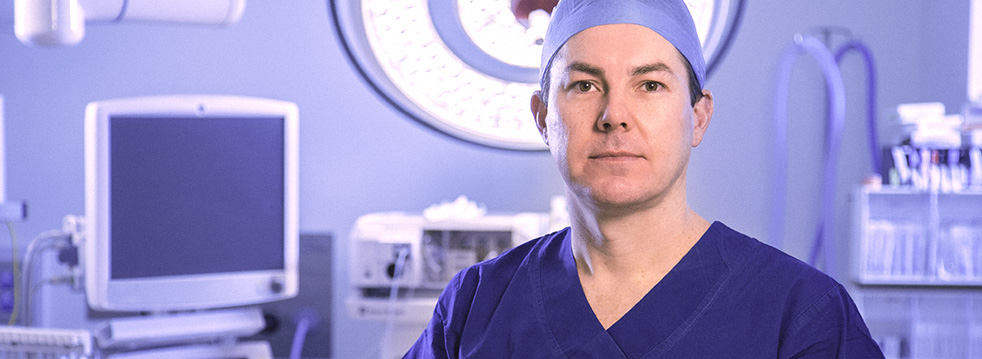What is faecal incontinence?
Faecal incontinence is the involuntary passage of liquid stool, solid stool or gas via the rectum. It is a common and highly distressing problems for many people. The incidence is up to 10% of the general population, however may be higher due to under-reporting. Faecal incontinence can lead to anxiety, reduced self confidence and social isolation, with people scared to leave their house due to fear of episodes of incontinence.
What causes faecal incontinence?
The ability to maintain continence involves a complex interplay between pelvic nerves, muscles and the bowel. There are many possible causes of faecal incontinence, and may involve one or a combination of:
- Anal sphincter damage – There are two anal sphincters (internal and external). The sphincters are muscles at the end of the bowel, around the anus. Damage to the sphincter muscles can lead to leakage. Common causes of sphincter injury are vaginal childbirth and previous surgery.
- Nerve damage – Any disorders affecting the nerves can lead to faecal incontinence. These include diabetes, multiple sclerosis (MS), spinal cord injury, vaginal childbirth. Damage to the nerves that control the lower gut and anal sphincter muscles can lead to faecal incontinence.
- Rectal prolapse – This may be internal or external prolapse. Surgical correction of the prolapse often improves incontinence.
- Diarrhoea – There is a multitude of causes of diarrhoea. Anyone who may be prone to faecal incontinence will have increased difficulty with continence when the bowel motions are loose.
- Reduced rectal distention – Several conditions can damage the rectum reducing its storage capacity. These include inflammatory bowel disease (ulcerative colitis and Crohn's disease) and radiation injury (radiation proctitis)
- Impacted faeces – This is more common in mental health patients and immobile or nursing home patients with chronic constipation. Hard faeces impacted in the rectum can result in relaxation of the anal sphincters, leading to leakage of liquid stool around the blockage (overflow diarrhoea, overflow incontinence).
- Unknown causes – The exact reason for incontinence may not be identified. Particularly in middle aged or older women, the sphincter muscle function reduces over time and can predispose to leakage. Often there may have been a small sphincter defect from childbirth, which the remaining sphincter muscle is able to compensate for initially, however over time as the good muscle deteriorates incontinence can occur.
What tests are required?
Your colorectal surgeon will generally recommend the following investigations to assist with identification of the causes of your faecal incontinence, which then in turn helps determining the appropriate treatment.
- Thorough history taking and physical examination including digital rectal examination
- Colonoscopy – to exclude colon or rectal cancer as a cause for the incontinence
- Defaecating proctogram – an specialised x-ray test performed during defaecation and after instillation of radiology paste into the rectum
- Anorectal manometry studies – to determine the sphincter muscle resting pressure, squeeze pressure, as well as rectal sensation and distensibility
- Endoanal ultrasound – this images the internal and external anal sphincter muscles to assess for previous sphincter injury and mucosal changes suggestive of internal rectal prolapse
After the above mentioned investigations have been performed, Dr Harris will chat with you in the office to explain the likely cause of your faecal incontinence and the possible treatment options available.
What treatment is available for faecal incontinence?
The treatment depends on the cause of the incontinence. Numerous treatment options are available. Surgery is not always required. Treatment may include any of the following:
- Stool bulking with a high fibre diet, regular fibre supplementation (e.g. Metamucil or Benefiber), and/or anti-diarrhoeal medication
- Dietitian advice
- Pelvic floor physiotherapy and biofeedback
- Laparoscopic ventral rectopexy (to treat prolapse as a cause for incontinence)
- Sacral nerve stimulation (implantable pacemaker to stimulate the anal sphincter muscles)
- Sphincter repair – not commonly performed due to poor long term results
- Colostomy formation – usually a last resort for people still severely affected by faecal incontinence when other treatment options have failed
What can I try myself to help with improving my faecal incontinence?
- Avoid foods and drinks that lead to diarrhoea or looser more frequent stools (e.g. dairy products, spicy foods, fatty foods, caffeine, diet soft drinks, alcohol, chewing gum)
- Consume smaller more frequent meals. In some people large meals trigger a reflex that triggers a bowel motion and/or diarrhoea. Smaller meals can reduce the frequency of bowel motions and thereby improve continence.
- Increase fibre. Usually this cannot be done with diet alone. Try adding a regular fibre supplement such as Metamucil or Benefiber. Start daily and increase to twice daily in order to bulk the stool. The recommended dietary intake of fibre is 25 – 30 grams. A gradual increase to this level is recommended over several weeks to minimise bloating, cramps and gas.
When should I ask for referral to a specialist?
If faecal incontinence is affecting your day to day activities, reducing your quality of life, or causing you to be depressed, ask your GP for referral to a colorectal surgeon. There are many treatment options available that do not necessarily require surgery. Dr Harris is familiar with this distressing condition and has helped many women and men troubled by incontinence.
